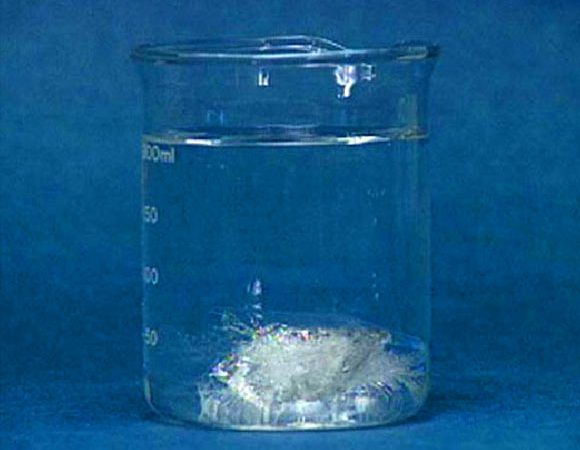Highly purified heavy water has a distinctly sweeter taste than same-purity normal (light) water, according to a study conducted by researchers from the Hebrew University of Jerusalem, the Czech Institute of Organic Chemistry and Biochemistry, and the Leibniz-Institute for Food Systems Biology at the Technical University of Munich.
Source: Sci News
Heavy water, also known as deuterium oxide (D2O), is water composed of a hydrogen isotope called deuterium and oxygen.
American scientist and Nobel laureate Harold Urey discovered deuterium in 1931 and was able to concentrate it in water.
The most notable difference in physical properties between pure heavy and normal water is the roughly 11% higher density of the former liquid, which is mostly a trivial consequence of deuterium being about twice as heavy as hydrogen.
A long-standing unresolved puzzle concerns the taste of heavy water.
“There is anecdotal evidence from the 1930s that the taste of pure heavy water is distinct from the neutral one of pure normal water, being described mostly as ‘sweet,’” said lead authors Dr. Masha Niv and Dr. Pavel Jungwirth and their colleagues.
“However, Urey and Failla addressed this question in a short article published in Science in 1935 concluding authoritatively that upon tasting ‘neither of us could detect the slightest difference between the taste of ordinary distilled water and the taste of pure heavy water’.”
“This had, with a rare exception, an inhibitive effect on further human studies, with research concerning effects of heavy water focusing primarily on animal or cell models.”
The scientists addressed the question of taste of heavy water in a series of sensory experiments in humans, behavioral experiments in mice, tests on sweet taste cells, and computational modeling.
Their results show that humans perceive heavy water as being clearly distinguishable from normal water based on its taste.
“Human subjects consistently perceive heavy water as being mildly sweet, and significantly sweeter than normal water,” the study authors said.
“Moreover, heavy water added to the sweetness of some sweeteners.”
The findings also show that heavy water elicits sweet taste via the human sweet taste receptor TAS1R2/TAS1R3.
“Future studies should be able to elucidate the precise site and mechanism of action, as well as the reason why normal water activates TAS1R2/TAS1R3 in particular, resulting in sweet (but not other) taste,” the scientists said.
“To this end, site directed mutagenesis as well as determination of the precise structure of this receptor would be of a key importance.”
The findings were published on bioRxiv.org on May 22, 2020.
Source: Sci News

































Leave a Comment
You must be logged in to post a comment.